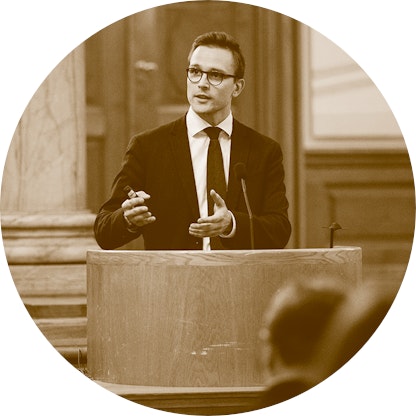We are in the last investment cycle
When the Social Democrats defeated the incumbent Liberal Party in the Danish national elections on 5 June 2019, many saw the result as a win for the climate, a focus of the Social Democrats’ campaign. Peter Bjerregaard, Market Regulation Manager at E.ON, says the new government must wean itself off fossil fuel taxes if Denmark is to be the climate action leader it frequently claims to be
Most large investments have a lifespan of 20 to 30 years. If we are to be carbon neutral before 2050, all investment decisions made today must support the move to a fossil free society
Ten years ago, heads of state and government gathered in Copenhagen for the climate summit COP15. The year before, the then Prime Minister of Denmark, Anders Fogh Rasmussen, had declared we should strengthen the free world by weakening our dependence on fossil fuels. The political ambition was to turn Denmark into a laboratory for green transportation, especially electric vehicles. The Social Democrats, in opposition then, echoed this ambition. Their target was 100,000 electric cars on the roads by 2015. The ambition pointed in the right direction, but it was never followed up by the necessary action. Today, only 10,000 out of 2.7 million cars are electric. The share of renewable energy in the Danish transport sector is below the EU average and, to make matters worse, the bulk of this renewable energy is derived from rapeseed and corn, which undoubtably could do more good in food production. Unlike today, the COP15 summit was held in the aftermath of the financial crisis. Even though climate change temporarily topped the agenda in 2009, the primary political focus was on solving more acute problems, such as unemployment and budget deficits. Today the situation is completely different. The Danish economy is characterised by strong finances, record low unemployment and a high level of competitiveness. There has never been a better time economically to speed up the green transition than now.
Above party politics
Contrary to most political issues, climate and environmental questions ought to be a source of agreement. After all, few people want to deliberately harm the environment. Nonetheless, the needed actions have been halted. One barrier to climate action is the myth of Denmark as a green frontrunner. Danish companies have unique strengths in different sectors, but the fantasy of leading, with the onus on others to act, has prevented political action. The former government explicitly lowered ambitions several times during the past four years, referring to Denmark's position as a frontrunner. Even though the Danish Council on Climate Change had shown the significant societal benefits of reducing carbon emissions by 40% by 2020, compared to 1990 levels, one of the first acts of the former government was to discard this target, which parliament had previously agreed. The loss of tax revenue from reduced fossil consumption was too large and Denmark was also way ahead of everybody, the arguments went. Yet, if we look at the data, Denmark has not made much more progress than other north-western European countries since 1990. Carbon emissions per capita are above the EU average and Danish greenhouse gas emissions actually rose in 2018.
A new normal
Eighteen out of the 19 warmest years ever measured were after 2000. Temperatures above 25°C in the Arctic region are not unusual and freight ships are now crossing Arctic waters where there used to be ice. Climate changes are happening, and we are slowly realising the impacts. If we are to have a reasonable chance of not exceeding the 1.5°C target set forth in the Paris Climate Agreement, the central question is not whether countries are doing something to reduce emissions. The question is whether they are doing enough. In many ways, we find ourselves in the last investment cycle. Most large investments have a lifespan of approximately 20 to 30 years. If we are to be carbon neutral well before 2050, all investment decisions made today must support the course towards a fossil free society. Decarbonisation has so far mainly focused on the energy sector. Partly as a result of this, transportation has just overtaken the energy sector as the primary source of carbon emissions in Denmark. Multiple studies have pointed over the last decade to the electrification of personal transport and the move from diesel to biogas for heavy transport as top priorities. Unfortunately, very little has been done to achieve this. One of the main reasons for this lack of climate action is to be found in the fact government budgets are dependent on the tax revenues from the very hydrocarbons from which they want to escape. This dependency relationship makes for an unhealthy bond. If we are to have a reasonable chance of reaching our climate targets, the tax revenue from fossil consumption needs to be replaced by broader tax bases, such as income, real estate or mobility. This is a key agenda item for the next Danish government. Hopefully, a politically tolerable solution to this question can be found and Denmark can provide the rest of the world with a real example to follow.
Do you have a thoughtful response to the opinion expressed here? Do you have an opinion regarding an aspect of the global energy transition you would like to share with other FORESIGHT readers? If so, please send a short pitch of 200 words and a sentence explaining why you are the right person to deliver this opinion to opinion@foresightdk.com.
